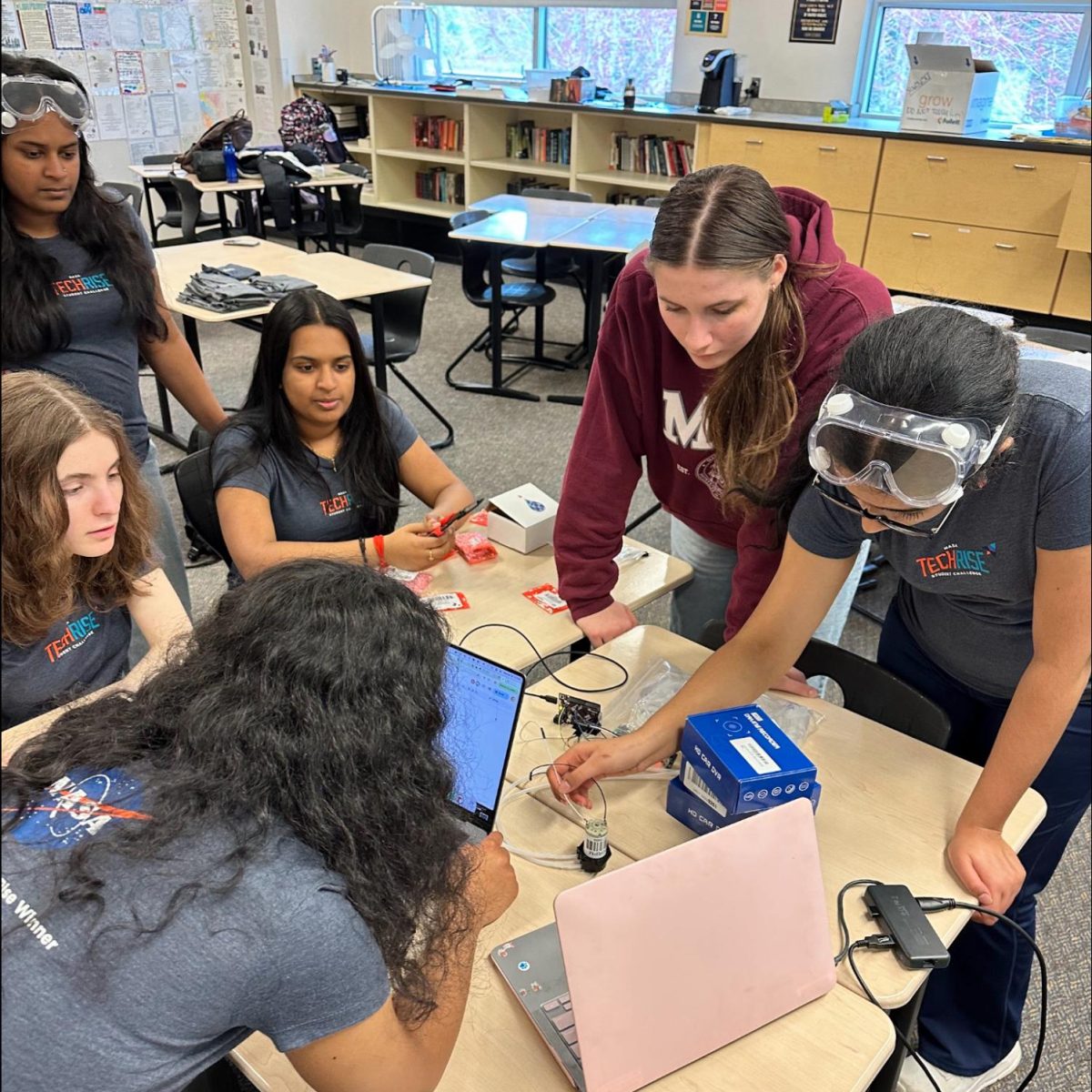Football season is one of the most exciting times of the year at BHS. Walking down to the Pop with everyone dressed in their spirit gear, the band playing for the whole town to hear, and the cheerleaders hyping everyone up, is unparalleled. Being in the student section, with the sound of the whistles on the field and the fight song playing behind you makes you feel like you’re part of a community. However, this quintessential highschool experience isn’t available to everyone equally. Ever since Haley Lindsay (‘23) was a freshman at Bothell going to football games, she’s known this to be true.
Haley uses a wheelchair, and the only access to the student section— the heart of the high school football game— is via stairs. Even if she is able to get to the student section and sit, her view is entirely blocked by everyone around her standing. This leaves her with two options: she can sit off to the side or across the field in one of the areas that is accessible to her, or one of her friends can carry her on their back while they stand in the student section. Haley explained that she doesn’t want to have to rely on her friends to carry her, “I don’t want to be on their back the whole time hurting their legs. I know it’s tiring”. She’s also gotten pushback from employees at Pop Keeney who told her she couldn’t be on someone’s back because it was a safety issue, even when she explained the situation. Luckily, in that instance, teachers and admin stepped in to allow her to be on her friend’s back, given that it was the only way for her to participate.
Inclusion isn’t a small thing. Being able to watch a football game might seem inconsequential to some, but the student section’s lack of accessibility is about more than watching a game. “If you don’t sit there, you’re not included. You’re not a part of the school,” Haley explains. “It’s weird how one thing like this can make me feel like I’m outside of everyone else. Just because I can’t go to this one thing.” Small or seemingly inconsequential things communicate a lot about who is and who isn’t being considered.
Some might argue that Pop Keeney technically complies with the ADA’s (Americans with Disabilities Act) standards for accessible design. The away side of the stadium has ramps up to the seats rather than stairs, and on the home side, there is a separate area with ramps. However, while this may look inclusive on paper, the reality for students with mobility issues doesn’t match the technicality. These laws exist to ensure access to everyone, regardless of ability status. They don’t exist as a meaningless box to check off. Crucially, Pop Keeney’s design does not allow access to the student section for students who cannot use stairs.
Haley has brought this up to some BHS staff members before, but wasn’t sure exactly where to go from there. “I’ve talked to multiple people. […] They did contact people and email them, but it kind of resulted in nothing.” Haley adds, “Maybe that’s something on my end. I need to keep pushing.” Although she was grateful to the adults who had encouraged her to speak up and had looked into the situation to some extent, in general Haley expressed frustration and disappointment. Though she always hears messages of inclusivity, she doesn’t always see actions to match those words. Still, Haley took ownership over a need to advocate for herself, not wanting to pin the blame on anyone and asserting again and again that she should do more. “I need to do my own work too. I understand that. Maybe I’m just frustrated with myself”. Haley said of her teachers and peers, “they don’t experience it like I do. I can’t make them understand my problems. But sometimes I wish I had more support […] I feel overwhelmed.”
It’s easy to understand why Haley might feel overwhelmed. She’s one of few kids at Bothell who uses a wheelchair so most of her peers aren’t aware of the unique barriers in front of her. So many of our buildings and facilities were designed without accessibility in mind, and those of us who are able-bodied don’t even give it a second thought unless we’re forced to— practically the definition of privilege. But one doesn’t have to be directly impacted by inaccessibility to see that it is a problem. Maybe Haley would feel less overwhelmed if more of us were asking for action on this issue. Being the only voice advocating for change is daunting. Despite this, Haley hopes she can do more to advocate for an accessible student section in case “someone else has a mobility issue and they want to go to the student section, but don’t feel like they can speak up.”









Nancy Marshall • Feb 15, 2024 at 2:31 pm
Thank you for writing this. We are parents of an entering freshman in 2024 to Woodinville high who wants to be included in the band and uses a wheelchair. The home side desperately needs ramps similar to the away. It is not currently ADA compliant.